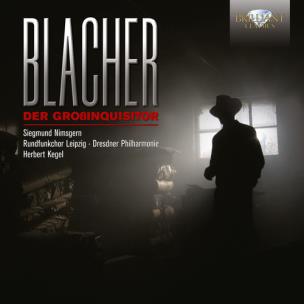- Regulamin
- Koszty dostawy
- Kontakt
- Dziś w ofercie 235 909 produktów
KSIĄŻKI
- Albumy
- Beletrystyka
- Biografie
- Dla dzieci i młodzieży
- Edukacja
- Ekonomia i biznes
- Ezoteryka
- Historia
- Informatyka
- Kalendarze
- Komiksy
- Kryminał i sensacja
- Kultura i sztuka
- Literatura faktu
- Literatura kobieca
- Literatura piękna
- Medycyna
- Nauka języków obcych
- Nauki humanistyczne
- Nauki przyrodnicze
- Nauki ścisłe
- Podręczniki
- Poradniki
- Prawo i administracja
- Przewodniki i podróże
- Psychologia
- Religia
- Sport
- Technika
- Zdrowie i uroda
ZABAWKI
- Artykuły dla niemowląt
- Bączki
- Bujaki i skoczki
- Ciągnij / pchaj
- Dla niemowlaka
- Grzechotki i gryzaki
- Karuzele i pozytywki
- Maty i centra zabaw
- Projektory i lampki
- Sortery i piramidki
- Zabawki
- Edukacyjne i kreatywne
- Figurki
- Klocki
- Lalki
- Pojazdy
- Pluszaki i maskotki
- Sport i rekreacja
- Zabawa w dom
- Zabawki drewniane
- Puzzle
- Do 200 elementów
- 201-500 elementów
- 501-1000 elementów
- Ponad 1000 elementów
- Puzzle 3D
ART. PAP
- Artykuły biurowe
- Artykuły piśmiennicze
- Bloczki i kartki samoprzylepne
- Dziurkacze
- Kalkulatory
- Nożyczki i nożyki
- Skoroszyty
- Teczki
- Wizytowniki
- Zszywacze
- Artykuły szkolne
- Akcesoria szkolne
- Modelowanie
- Notatniki i zeszyty
- Piórniki
- Plecaki i torby
- Pojemniki na śniadanie
- Pomoce naukowe
- Przybory matematyczne
- Przybory rysunkowe
- Upominki i gadżety
- Akcesoria do książek
- Artykuły balowe
- Breloki i zawieszki
- Drobiazgi, różności
- Kubki
- Oferta Świąteczna
- Papeteria, kartki i naklejki
- Skarpetki Many Mornings
- Upominki
GRY
MULTIMEDIA
- Audiobooki
- Beletrystyka
- Biografie i wspomnienia
- Dla dzieci i młodzieży
- Fantastyka
- Filozofia i religia
- Historia
- Literatura faktu i reportaż
- Poradniki
- Sensacja i kryminał
- Filmy DVD/BD
- Animowane
- Biograficzne
- Fantasy
- Horrory
- Komedie
- Romanse
- Science Fiction
- Sensacyjne / kino akcji
- Thrillery
- Muzyka CD
- Alternatywna
- Blues
- Dla dzieci
- Jazz
- Klasyczna
- Piosenka aktorska i poetycka
- Pop
- Rock
- Świąteczna i kolędy
- Akcesoria GSM
- Głośniki
- Kable i adaptery
- Klawiatury
- Myszy
- Słuchawki
PROMOCJE
ZDROWIE
LEGO

Blacher: Der Grossinquisitor
Wydawca:
Brilliant Classics
EAN:
5029365943727
oprawa:
Plastikowa
format:
14.0x12.0cm
język:
angielski
rok wydania:
1986
(0) Sprawdź recenzje
Opis produktu
Zasady bezpieczeństwa
Boris Blacher's oratorio, Der Großinquisitor, was only half finished in 1943. Having found himself in truly dire straits -- forced to withdraw from musical life thanks to his inclusion on the Nazi register of Jews in music, and hit by a particularly nasty relapse of tuberculosis -- it took the friendship and hospitality of his pupil, Gottfried von Einem, to help him regain his health and confidence, and finish the oratorio.
The text is based on Dostoyevsky's novel, The Brothers Karamazov, illustrating Jesus's return to earth in 16th-century Seville. The depiction of the heretics burned to the glory of God could not be a clearer reflection of the fate of the Jews at the hands of the Nazis. Distinct from the other works in Blacher's oeuvre thanks to its seriousness and tonal harmony, Der Großinquisitor also contains elements that are typical of the composer's style, such as terse rhythms and seemingly aimless melodic lines.
The role of the Inquisitor is sung by German bass-baritone, Siegmund Nimsgern, who has enjoyed an international career as an opera singer, performing with the Royal Opera (London), Metropolitan Opera (New York) and the Vienna State Opera, among others. Alongside him is the Rundfunkchor Leipzig and Dresdner Philharmonie, conducted by Herbert Kegel.
Other information:
- The only recording of this moving oratorio by German composer Boris Blacher, recorded in May 1986 at the Lukaskirche in Dresden.
- The work is based on Dostoyevsky's - The Brothers Karamazov, finding in it close references to the fate of the Jews in the holocaust.
- Exemplary performance by the great baritone Siegmund Nimsgern, and the Dresdner Philharmonie under 20th-century-music-champion Herbert Kegel.
Booklet contains liner notes on composers and the work, as well as the sung texts.
CENA:
21,19
zł
Cena detaliczna:
24,99 zł
15%
rabatu
Najniższa cena z ostatnich 30 dni: 21,24 zł
Produkt niedostępny
Uwaga!!!
Ten produkt jest zapowiedzią. Realizacja Twojego zamówienia ulegnie przez to wydłużeniu do czasu premiery tej pozycji. Czy chcesz dodać ten produkt do koszyka?


Wybierz wariant produktu
